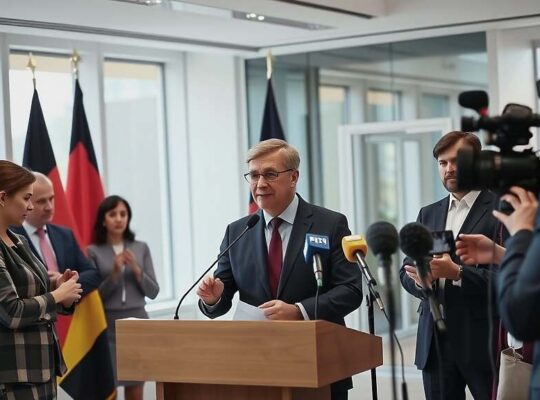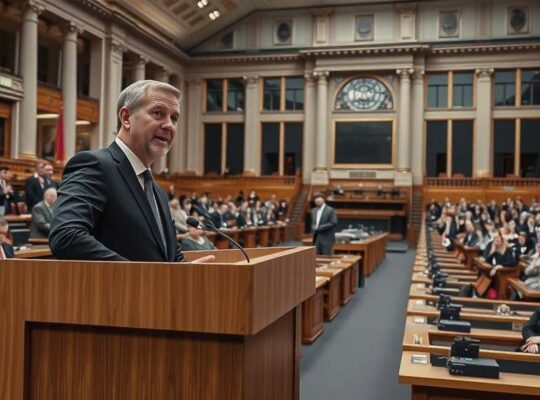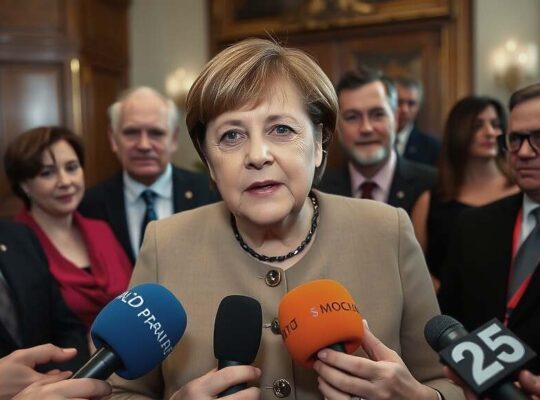German politicians from the Social Democratic Party (SPD) and the Green Party have sharply criticized the recent visit by CDU leader Friedrich Merz to Turkish President Recep Tayyip Erdoğan, questioning the priorities and potential consequences of his conciliatory approach. The visit, undertaken as a formal introductory trip, saw Merz pledge further steps towards Turkey’s EU accession and advocate for a strategic dialogue on the matter.
Serdar Yüksel, Chairman of the German-Turkish Parliamentary Group and an SPD politician, argued fiercely that any discussion of European perspectives with Ankara must be accompanied by a frank acknowledgement of the nation’s human rights record. “Those who speak in Ankara about European perspectives cannot remain silent about the human rights reality in the country” Yüksel told Focus magazine. He questioned the optics of Merz promising closer ties to the EU without addressing issues such as political prisoners, restrictions on press freedom and the treatment of democratic opposition figures like Ekrem Imamoglu.
Yüksel emphasized that Europe represents more than a purely security or economic project, asserting that European values must be championed even when engaging with challenging partners. He added that pro-democratic forces currently facing pressure in Turkey expect more than a “purely transactional partnership” from Germany and Europe; they require a clear and principled stance. “Silence, calculated for diplomatic convenience, may be comfortable, but it doesn’t contribute to a genuine European perspective for Turkey.
Green Party human rights representative Max Lucks echoed this sentiment, delivering a scathing critique of Merz’s conduct. Lucks stated that Merz’s silence on critical issues demonstrated either a willful ignorance of the reality within Turkey or a deliberate self-imposed muzzle. He questioned the conspicuous absence of any mention of President Erdoğan’s increasingly politicized judiciary and its actions against democratic opposition.
Notably, Lucks pointed to the failure of Merz to address the case of Kurdish politician Selahattin Demirtaş, who has been detained since 2016. The European Court of Human Rights has repeatedly called for his release, a plea disregarded by Turkey and now, according to Lucks, seemingly ignored by the German government. This omission, he suggested, decisively proves that Merz shows little interest in the country’s democratic opposition.
While Merz did assert, in a private conversation with Erdoğan, that he had raised the issue of judicial independence, critics contend that this single point, without a broader condemnation of the prevailing political climate, falls dramatically short of what is expected from a German leader seeking to influence Turkey’s trajectory in alignment with European democratic principles. The visit has thus sparked a fierce debate within Germany concerning its role and leverage in relation to Ankara, highlighting a fundamental disagreement on how to balance strategic interests with the promotion of universal values.












